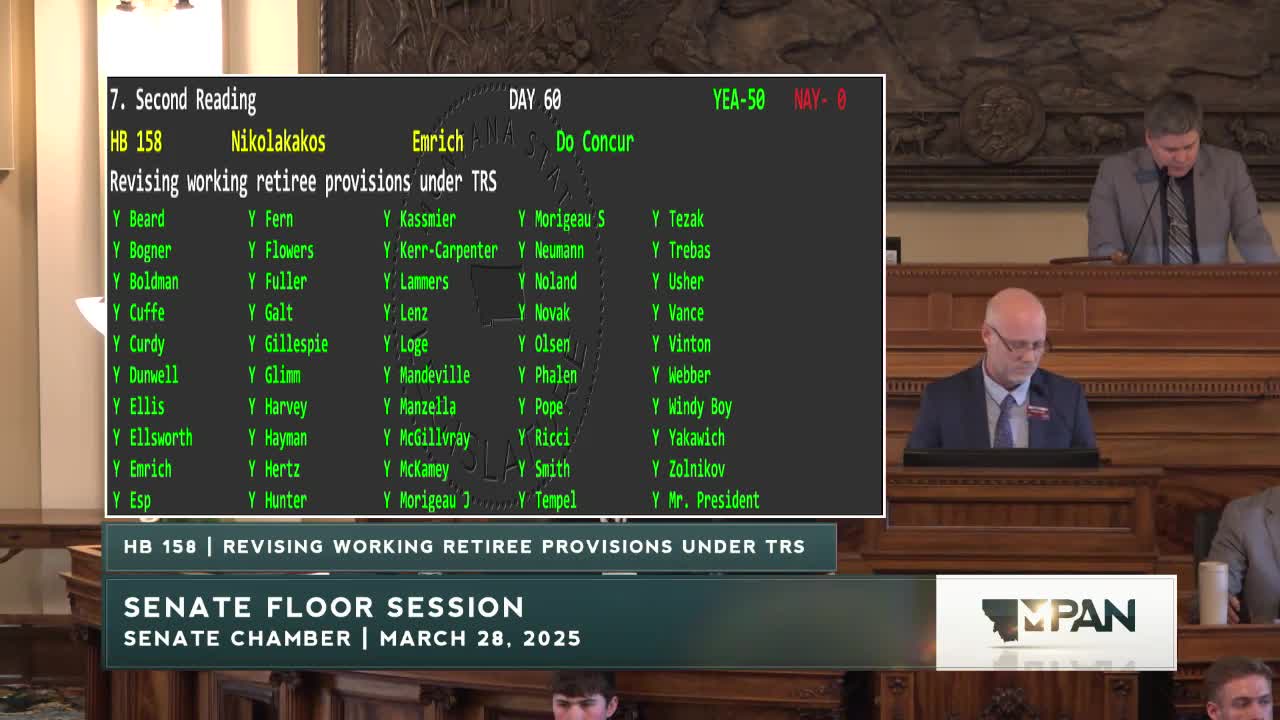Article not found
This article is no longer available. But don't worry—we've gathered other articles that discuss the same topic.
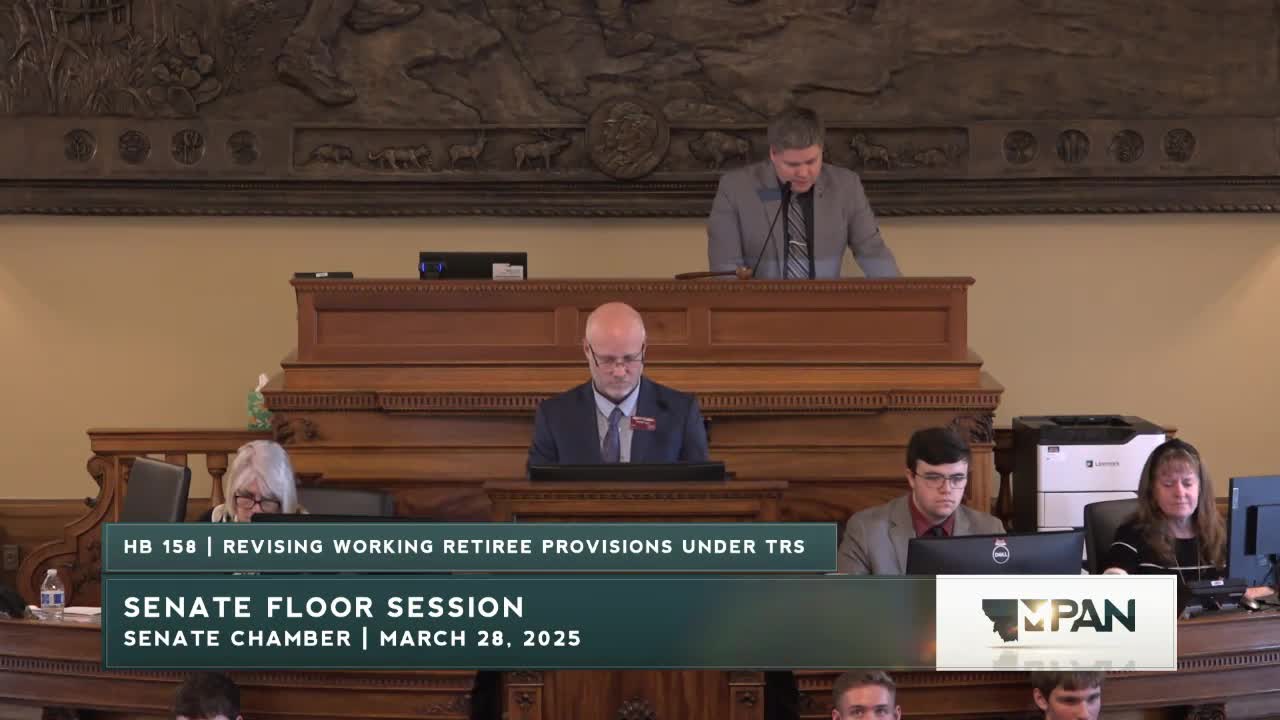
Votes at a glance: Key House bills the Montana Senate acted on March 28
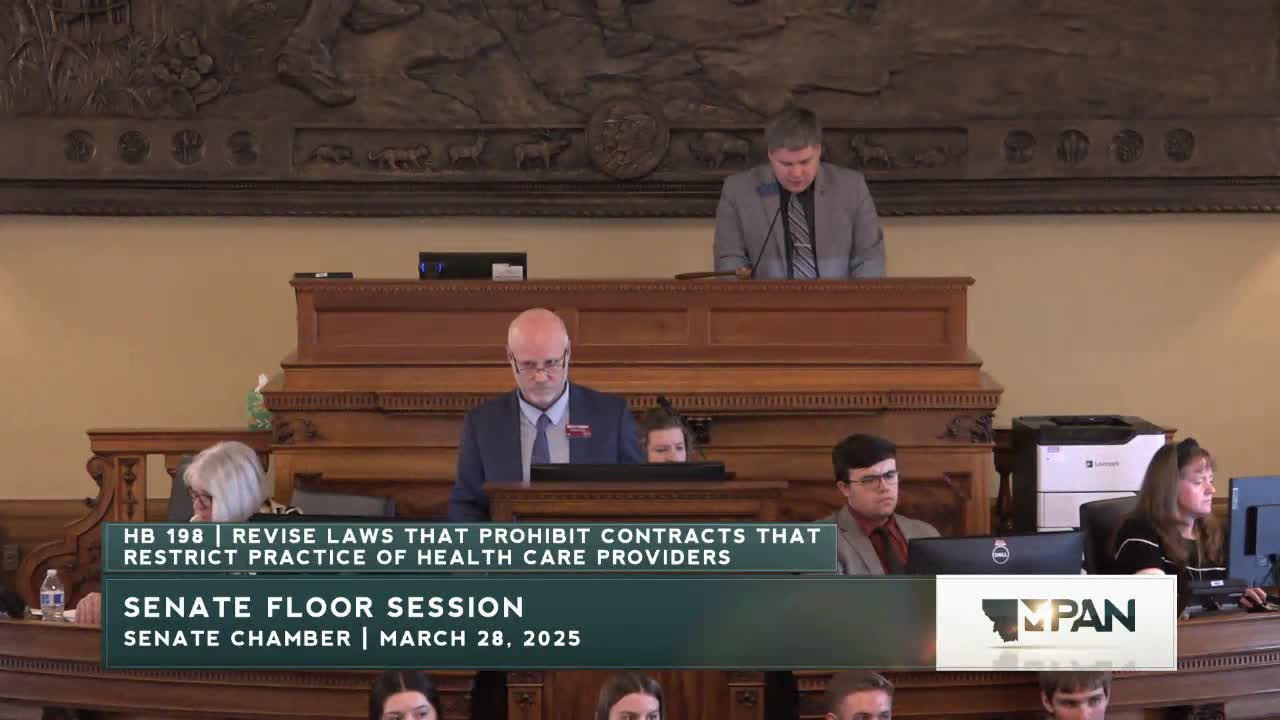
Senate concurs in bill limiting who may enter job sites to request electrician licenses, supporters cite safety and productivity
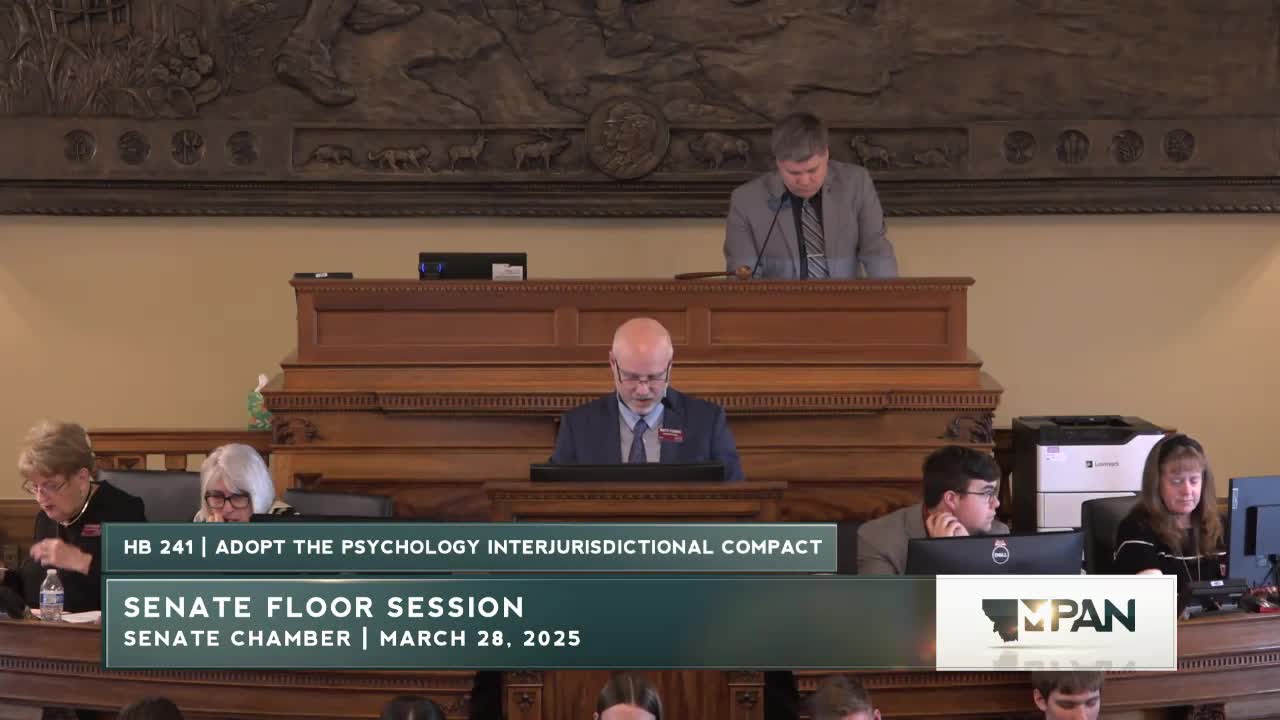
Senate concurs in psychology compact to enable interstate telepsychology; supporters cite continuity of care
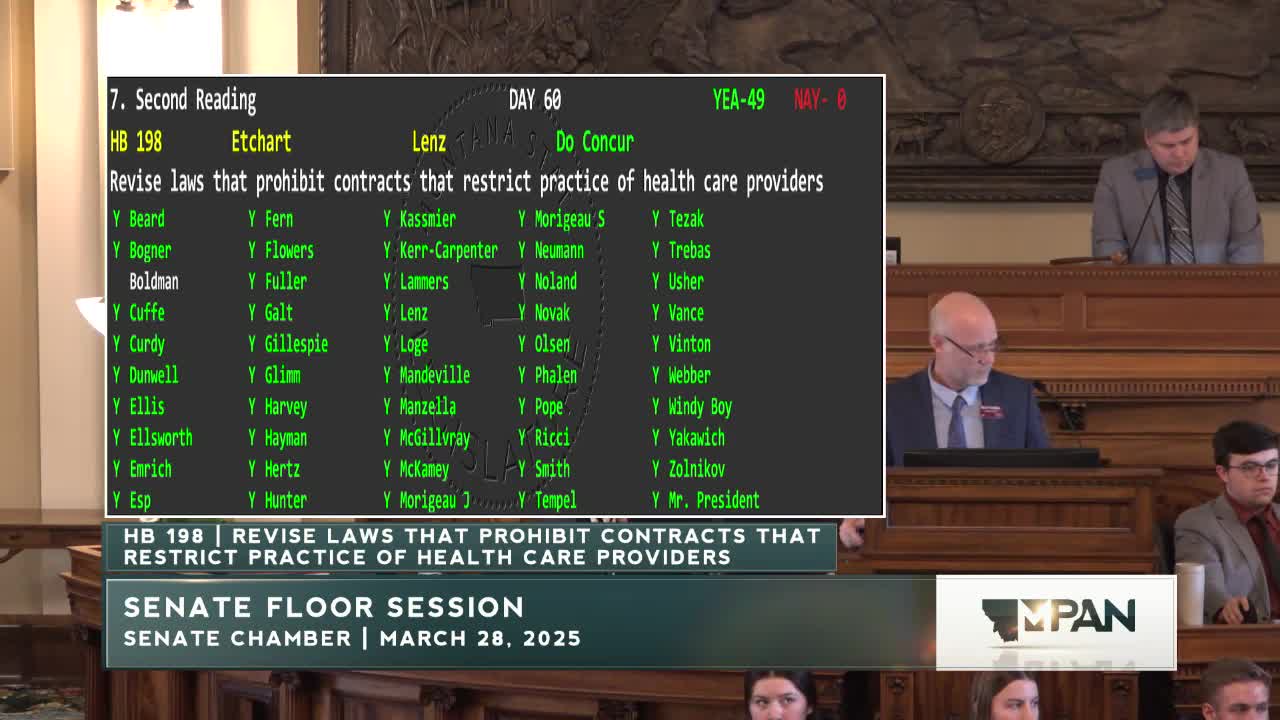
Montana Senate approves three wolf-management bills after lengthy floor debate over population, seasons and methods
